In 2024, Pakistan has sent ‘The Glassworker’, its first 2D, hand drawn animated feature to the 97th Oscars. The film’s appeal to international audiences and critical acclaim make it by far the only choice.
However, while Pakistani cinema has existed since 1948, ‘The Glassworker’ is among only a handful of the films that have ever been sent to the Oscars. Most of these films have either appealed to a niche audience, been banned or censored, or have never been seen by Pakistani audiences.
Yet, there are several gems here which should be viewed by every Pakistani. These films are part of our heritage. They tell our story to the world.
So, here are all the films which have ever been sent to the Oscars in the category of “Best Foreign Film” (now “Best International Feature Film”) from Pakistan.
Jaago Hua Savera – 1959
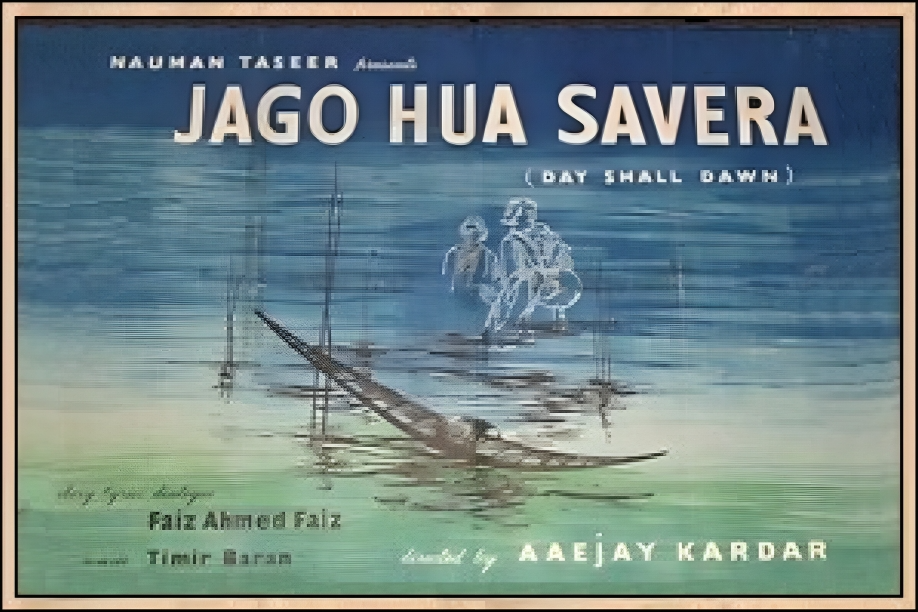
The first Pakistani film to be sent for the Oscars is one that very, very few people have ever seen. ‘Jago Hua Savera’ (translated poorly as “The Day Shall Dawn”/ “And the Day Came”) was directed by A. J. Kardar with a screenplay by the great Faiz Ahmed Faiz himself. The story is based on the novel “Padma Nadir Majhi” by the Bengali writer Manik Bandyopadhay.
The film is about fishermen families living in the then East Pakistan (now Bangladesh). Filmed in Urdu, ‘Jago Hua Savera’ features performances that aspire more to Satyajit Ray and Mrinal Sen rather than the theatrical sensibility found in most Pakistani films of the day. The first sweeping shot of fishing boats in the open river as well as the final shot of the boats heading out at the break of dawn show that A. J. Kardar was a master cinematographer and restrained filmmaker.
‘Jago Hua Savera’ was banned by the Ayub Khan government in Pakistan three days before its release. Shortly after, Faiz Ahmad Faiz, along with other communist artists and writers, was jailed by the regime. The film’s left leaning message and the fact that its lead actors were former members of the socialist Indian People’s Theater Association didn’t help their case.
While ‘Jago Hua Savera’ was not nominated at the Oscars, it won a Golden Medal at the 1st Moscow International Film Festival in 1959. Nearly 60 years after its release, the film was also screened at the 2016 Cannes Film Festival in the Classics category. Today, you can find the film on YouTube
.
Ghoonghat – 1962

Perhaps the most well known and commercially successful film on this list, ‘Ghoonghat’ has attained iconic status in Pakistan. Khwaja Khursheed Anwar, Pakistan’s auteur filmmaker wrote and directed this masterpiece, as well as scored it.
Based on the short story “Dosheeza” by Ghulam Mohammad, the film starred Nayyar Sultana and Santosh Kumar, two of the biggest stars of their day.
The film won big at the Nigar Awards, bagging 4, including “Best Actor” for Santosh Kumar and “Best Musician” for Khwaja Khursheed Anwar. It also emerged as a major hit at the local box office.
Khwaja Khursheed Anwar’s signature eeriness is on display in Ghoonghat. It’s perhaps his best known film. Darkness and fog envelope the world in ‘Ghoonghat’, with a feeling that not all is as it seems.
The story follows a newlywed groom Shahid, on a train to his home. However, his bride, still wearing the “Ghoonghat”, escapes in the middle of the night from the train compartment, leaving him shattered. Years later, when he visits a hill station, still a broken man, he is enchanted by a woman who lives in the hills.
The film was ultimately not nominated for the Oscars in 1963, but it has become an iconic and cult film since its release. You can watch it here.
‘Ghoonghat’ would remain Pakistan’s last entry to the Oscars for nearly 50 years. It’s unknown why exactly the film industry stopped sending nominees, but the process finally resumed in 2013, when the new wave of Pakistani cinema hit theaters.
Zinda Bhaag – 2013
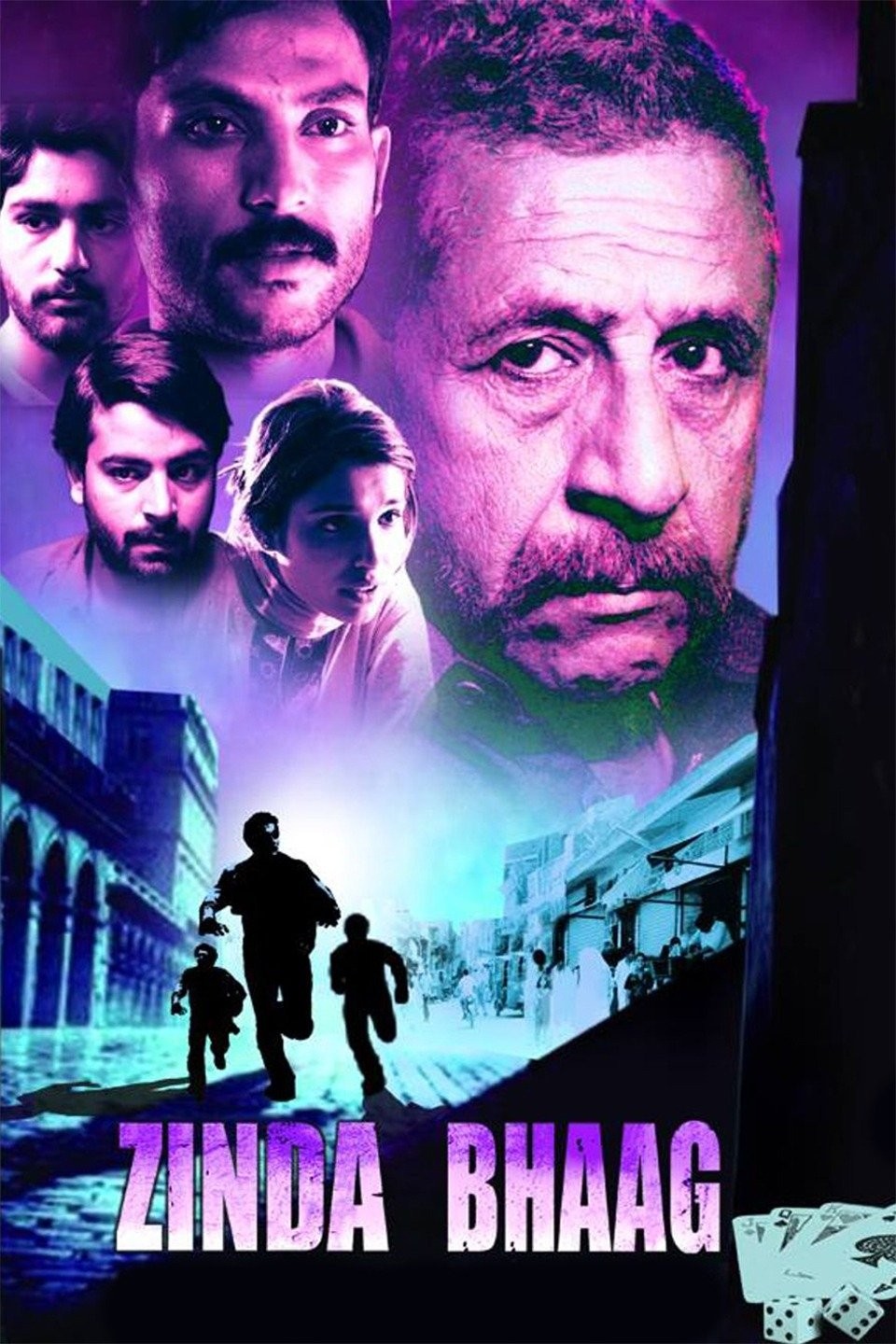
‘Zinda Bhaag’ came out in 2013, the year that Pakistani cinema’s new wave officially arrived. It accompanied the blockbuster ‘Waar’, the horror film ‘Siyaah’ and the sports drama ‘Main Hoon Shahid Afridi’.
While Zinda Bhaag’s box office collection was modest, it was noticed as an off-beat comedy focused on the issue of illegal immigration and brain drain in Pakistan. Starring Zain Afzal, Amna Ilyas, and Naseeruddin Shah, the film was noted for not taking itself too seriously, as well as taking the dark comedy route to explore a serious issue.
‘Zinda Bhaag’ was made as part of “Let’s Talk Men”, a project by the UN for the prevention of gender-based violence. It was the first film since ‘Ghoonghat’ that was sent to the Oscars from Pakistan.
You can watch it here.
Dukhtar – 2014
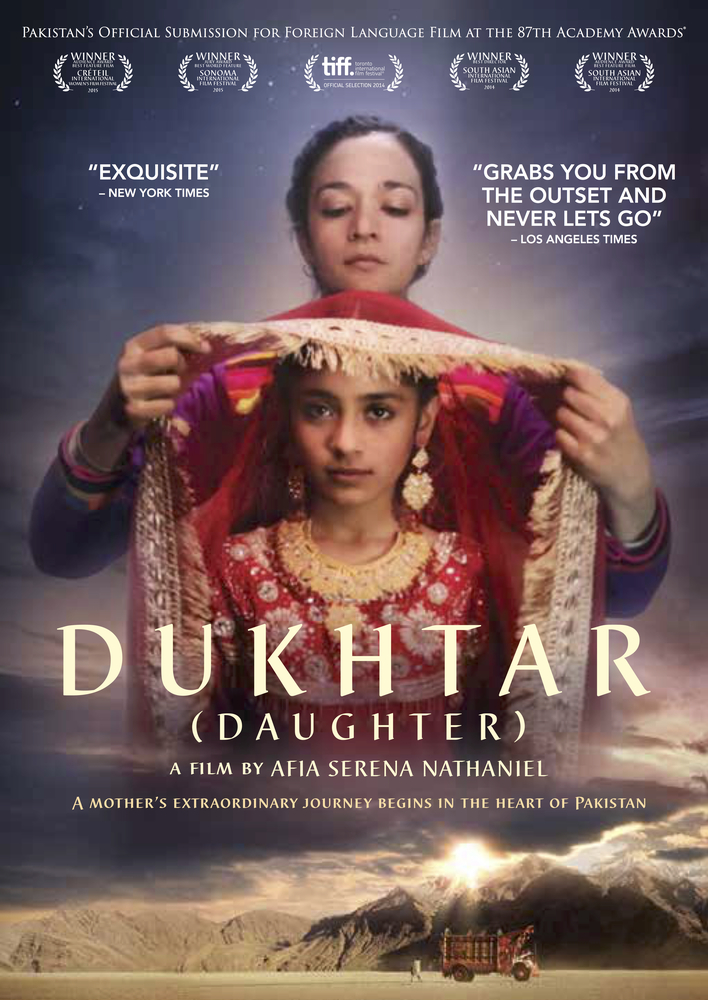
‘Dukhtar’, meaning daughter, was released to a lot of acclaim to international audiences at the Toronto International Film Festival (TIFF). Directed by Afia Nathaniel and starring Samiya Mumtaz, Mohib Mirza and Ajab Gul, the film focuses on a mother trying to save her daughter from child marriage.
Samiya Mumtaz stars as the mother, who was married as a child herself, trying to save her daughter from getting married to a much older man in her tribe. Ajab Gul stars as a henchman tasked with bringing back the mother and daughter.
The film was not a huge success in Pakistan, earning less than PKR 2 Crore, but it gained great critical acclaim.
‘Dukhtar’ was the obvious choice to be sent to the Oscars in 2014. Other than ‘Operation 021’ and ‘Na Maloom Afraad’, no other film of note was released that year. ‘Dukhtar’, having the good fortune to be selected for TIFF, was sent.
Moor – 2015

‘Moor’ (meaning mother) was Jami’s long awaited magnum opus. With some trailers for the film going back as far as 2011, when it was finally released in 2015, the hype among its niche audience was massive.
The plot focused on an old railway station master in Balochistan who is caught between his obligation to provide for his family, and his loyalty to the motherland. Simultaneously, the film focuses on his son, who is working in Karachi and facing his own moral dilemmas.
The film starred Hameed Sheikh as the station master, Samiya Mumtaz as his wife, and Shaz Khan as his son, along with Nayyer Ejaz and Sonya Hussyn.
The film made modest box office returns, but ultimately did not live up to expectations either with critics or with audiences. However, its off-beat plot, sweeping cinematography and great performances packed enough of a punch that it was sent for the Oscars in 2015.
Mah-e-Mir – 2016
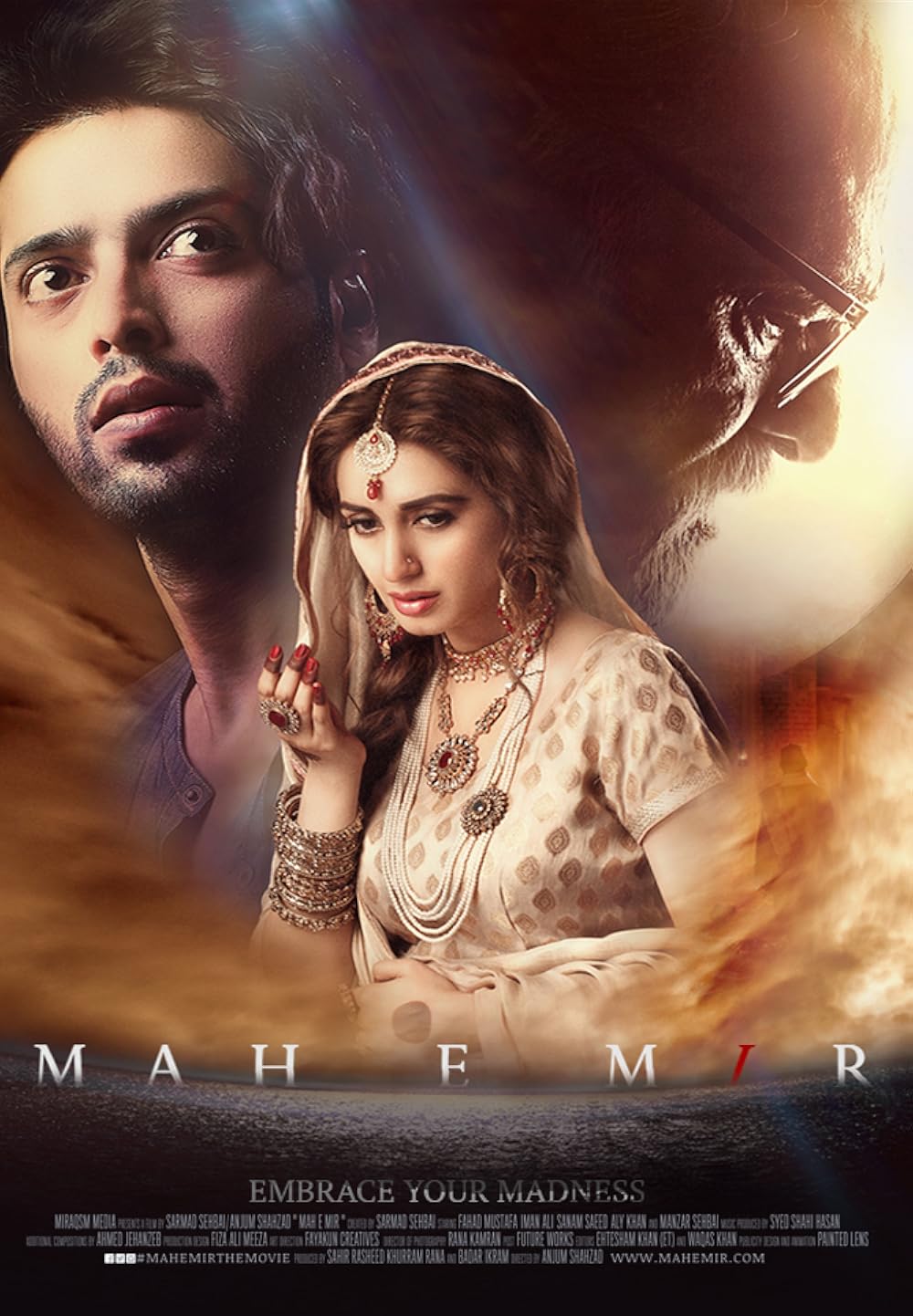
‘Mah-e-Mir’ was Manzar Sehbai’s ode to the 18th century poet Mir Taqi Mir. Starring Fahad Mustafa, Manzar Sehbai, Iman Ali, and Sanam Saeed.
Written by Sarmad Sehbai, the film follows Pakistan’s biopic formula, by dealing in symbols and allegory rather than opting for a straight narrative. As with “Jinnah”, “Mirza Ghalib Bandar Road Par”, and “Manto Rama”, the film contrasts past with present and ideals with reality.
The film switches between the lives of Mir himself as well as a contemporary writer and poet Jamal. The contrast between the lives of these two artists forms the crux of the film and its commentary on breaking norms, pursuing love, and of course, the state of Urdu poetry.
The film’s dialogue about the state of the world, art and commerce, and the madness of love is esoteric and indulgent as it should be. However, its emphasis on pure Urdu as well as certain dialogues which are even spoken in Persian, forms a wall between the audience and the artists.
The film is at its strongest when it surrenders completely to poetry and speaks in symbols. There is no greater example of this than the opening and closing sequences.
While other critical darlings were released in 2016 in Pakistan like “Dobara Phir Se”, and “Abdullah: The Final Witness”, Mah-e-Mir was selected to represent Pakistan at the 89th Oscars.
Saawan – 2017
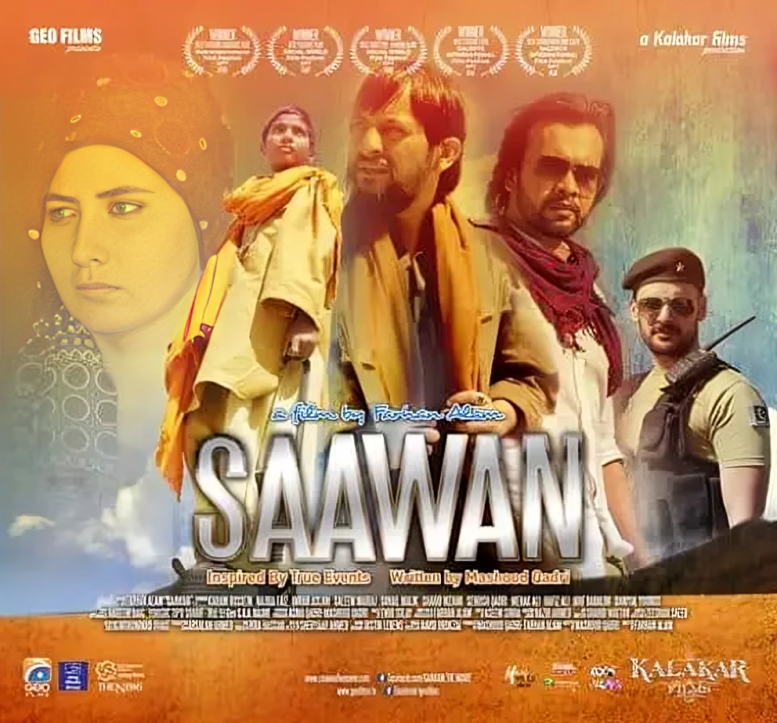
In 2017, ‘Saawan’, a Balochi film was selected for submission to the 90th Oscars. It focuses on a young boy with polio who is abandoned by his father in the rugged wilderness and tries to make it to his family. The film flew under the radar in Pakistan and was not particularly critically acclaimed either. However, its emphasis on the issue of polio and its rampant prevalence in Pakistan made it a solid choice for the Oscar submission.You can watch it here.
‘Saawan’ starred young Karim Hussein as the titular character and though it received acclaim at different foreign festivals, it didn’t make it to the Oscars shortlist.
Cake – 2018
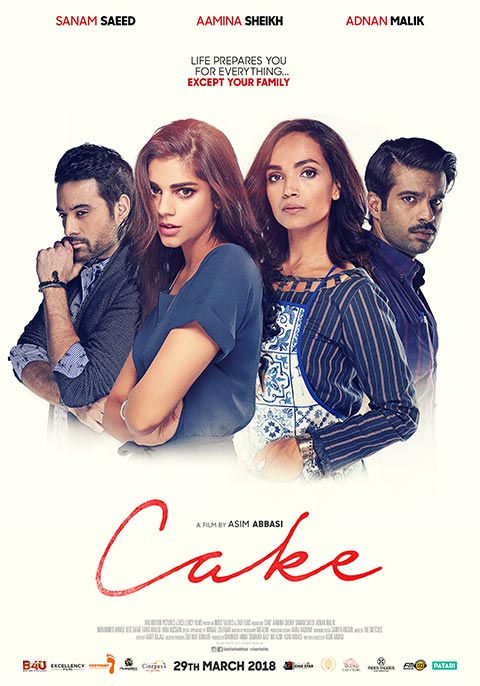
Asim Abbasi’s family drama was sent to the Oscars in 2018 after making a splash with critics and at the box office. Earning decent at box office and clicking with urban audiences, ‘Cake’ was a collection of powerhouse performances from both Sanam Saeed, and especially Aamina Sheikh.
‘Cake’ touched on an issue well known to those belonging to rural areas in Pakistan. When someone in the family of a landowner, feudal lord or Chaudhry gets into legal trouble, the crime is covered up, and ordinary people pay the price.
The film doesn’t treat its characters as heroes or villains and puts narrative and characters first beyond flash. The long one-take that is the climax of the film is expertly filmed. You don’t even notice the shift at first and the take seamlessly integrated into the narrative.
While it didn’t reinvent the wheel, Cake’s naturalistic approach to the family drama, while also focusing on a social evil within Pakistan made it an appropriate choice for the Oscars.
Asim Abbasi would go on to direct two web series, “Churails” and “Barzakh”, both dealing with social ills in Pakistan, though his approach to these would be much less restrained than with ‘Cake’. ‘Cake’ remains his only feature film.
Laal Kabootar – 2019
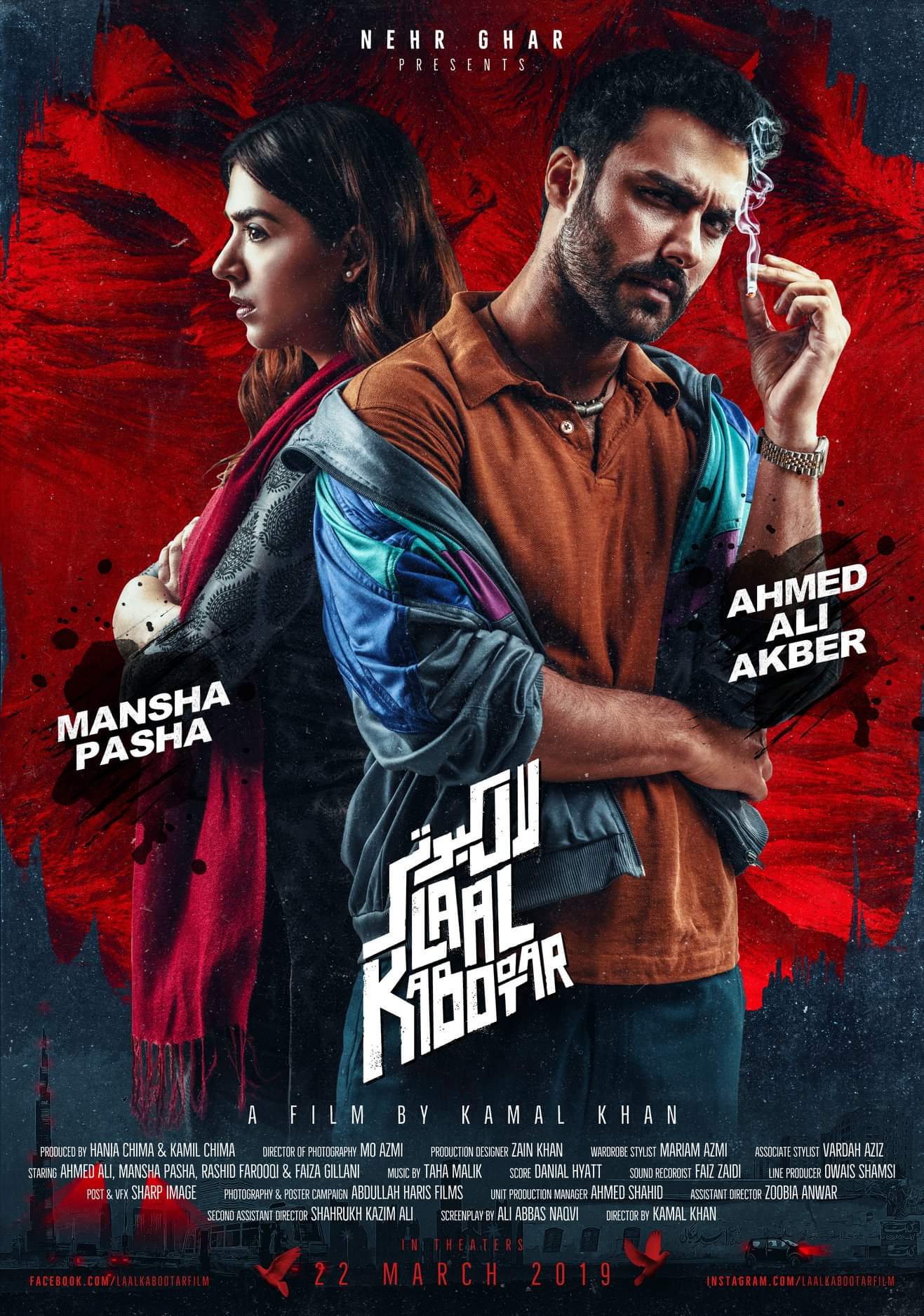
‘Laal Kabootar’ hit cinemas at a time when all Indian films had been banned in Pakistan following the Balakot air strikes. Playing in mostly empty theaters, the film managed to find a niche audience and make a modest box office total.
Starring Ahmed Ali Akbar, Mansha Pasha, and Rashid Farooqui giving a career best performance, ‘Laal Kabootar’ shines a light on the general lawlessness of Karachi, the push to move abroad for better prospects, and the sinister land mafia.
PakistaniCinema.Net gave the film a very favourable review when it first hit theaters, and it remains one of our favourites since the new wave began. In 2019, when most films were either flops or unexciting, ‘Laal Kabootar’ showcased some great new talent.
One was Kamal Khan in the director’s chair showed that he could stand toe-to-toe with the best in Pakistan and deliver a tightly edited, well shot social drama. The other was Mo Azmi in the cinematographer’s seat. Mo Azmi’s emphasis on warm colours and bright tones to accentuate his projects allowed him to paint a Karachi which was at once bright and shining, and also harsh and unforgiving.
Laal Kabootar’s entry to the Oscars, while not ideal, since it was basically a straightforward crime thriller, was Pakistan’s only option that year. Its chances were always slim, but at least it presented a realist look at the life of Karachi.
Zindagi Tamasha – 2020
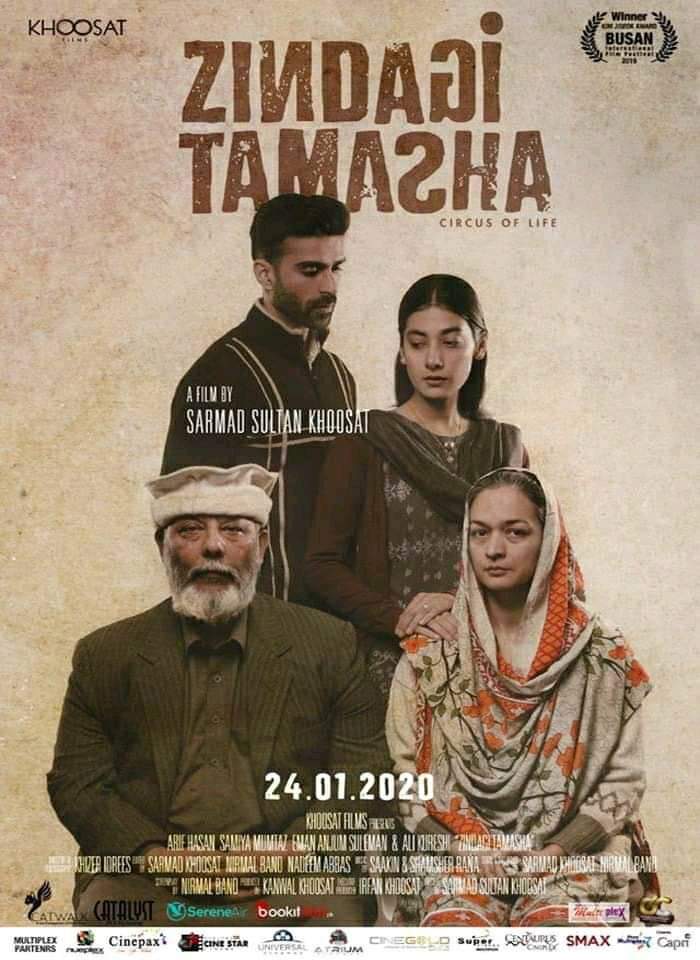
‘Zindagi Tamasha’ has all the ingredients of a Pakistani Oscar entry. It’s controversial, it was banned, it tackles social ills, and it has won awards at international film festivals.
However, the story of ‘Zindagi Tamasha’ is less about tackling taboos and breaking norms, and more about a deep-seated sadness. It’s ironic that the film was never allowed a theatrical release and was only put up online on YouTube many years later in 2023.
The film is about a Naat Khwaan who, in a private gathering with friends, dances to an old song. That song is “Zindagi Tamasha Bani” by Noor Jahan. Someone records that dance and uploads it on Facebook.
From that upload, a pandora’s box is unleashed and the Naat Khwan is judged by society, his friends, and even his family. No one is willing to look beyond his profession and see that his dance was merely personal expression.
The film features a muted Lahore, somber performances by Arif Hassan (playing Rahat Khwaja the Naat Khwan), Samiya Mumtaz (the Naat Khwan’s wife) and Eman Suleiman (the Naat Khwan’s daughter Sadaf), and a beautiful rendition of “Aj Sik Mitraan”, a Naat by Pir Meher Ali Shah.
The film was first released at the Busan International Film Festival in South Korea where it won the Kim Ji-Seok Award. It also won the “Best Film” and “Best Actor” awards at the 2021 Asian World Film Festival in Los Angeles.
Other than winning awards and acclaim abroad, the film courted controversy in Pakistan right from the release of its theatrical trailer. Allusions to taboo subjects led to protests against it by certain religious political parties which led to an unofficial ban of sorts, even though the film had been cleared by all censor boards.
When it was finally released online in 2023, the general reaction was that it needn’t have been censored or banned at all.
Joyland – 2022
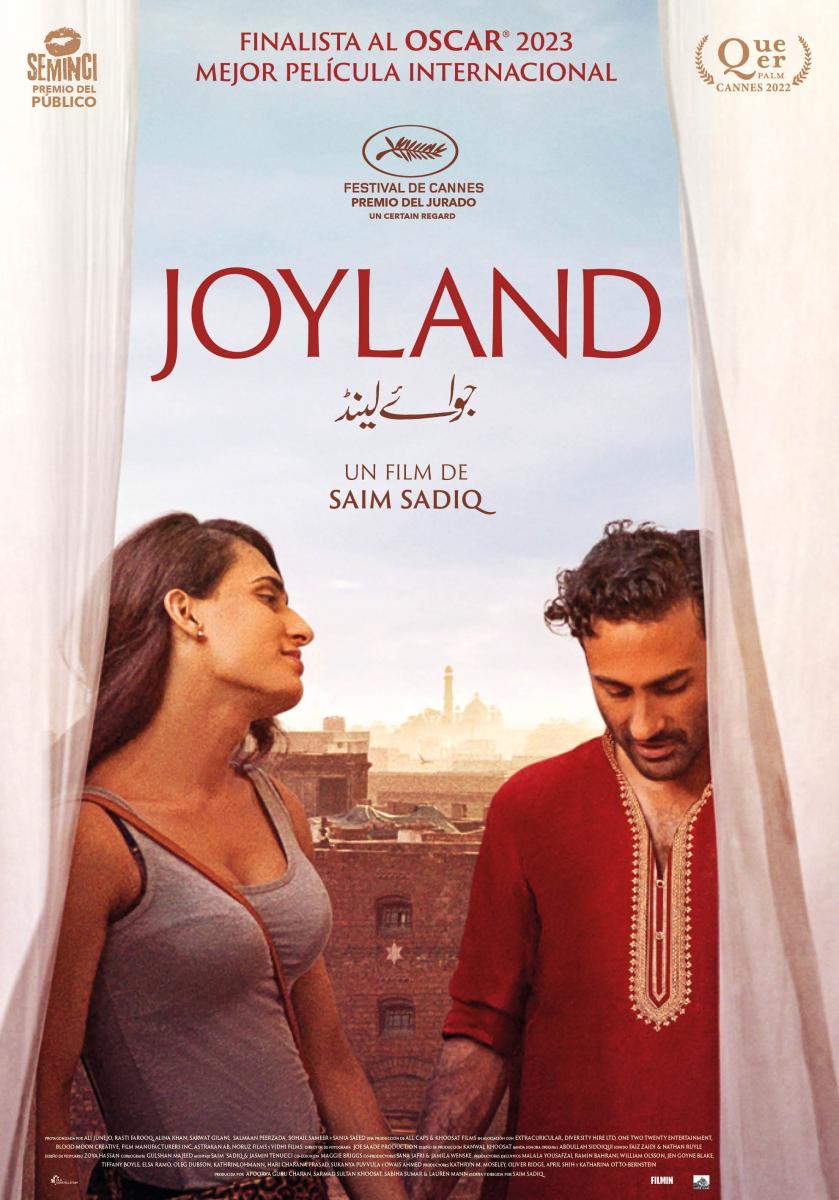
‘Joyland’, perhaps the most controversial entry on this list, other than ‘Zindagi Tamasha’, has been celebrated abroad and reviled in Pakistan. Its plot focuses on a patriarchal family and the tensions beneath the surface. The subplot focusing on the family’s youngest son and his obsession with a transgender dancer at a stage show theater.
‘Joyland’ won the Jury Prize and the Queer Palm at the Cannes Film Festival before its wide release. Despite censorship efforts and bans, the film was released in various Pakistani cities and received acclaim from critics and audiences. However, it also faced an extreme level of backlash from audiences as well.
The subplot featuring the trans dancer, placed front and center in the marketing, was discussed ad infinitum in Pakistan. It also brought out the discussion about laws surrounding the legal identity of transgender and intersex people in Pakistan.
‘Joyland’ eventually became the first Pakistani film to be shortlisted for the Academy Award for “Best International Film”.
In Flames – 2023
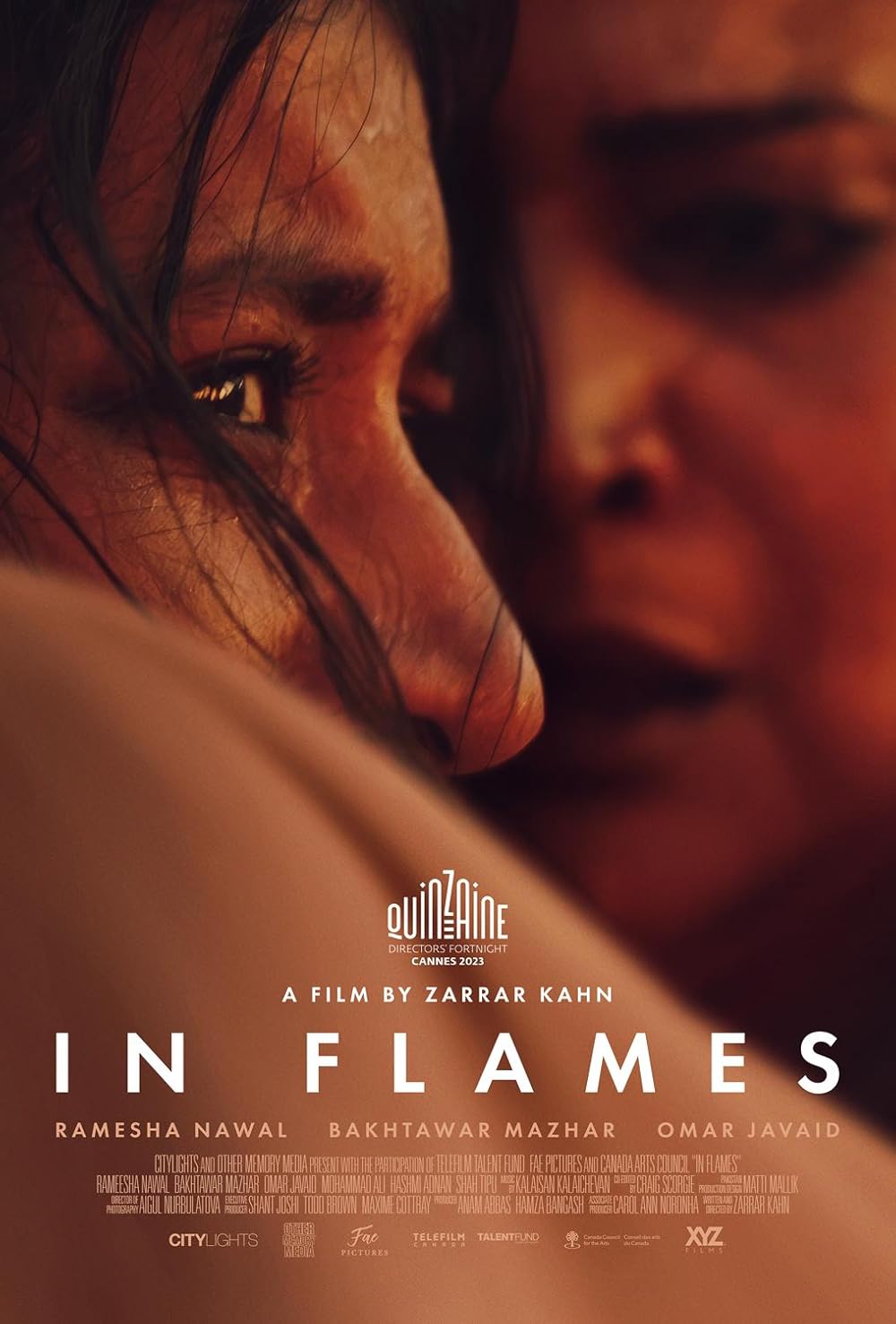
‘In Flames’, first time director Zarrar Kahn’s social horror film was a first for Pakistan’s Oscar entries. A horror film had never been submitted to the Academy Awards by Pakistan. Yet, the film’s emphasis on women’s plight within Pakistan as well as its feminist bent probably appealed to the Pakistani jury.
Well, that and the fact that it premiered at the 2023 Cannes Film Festival! In fact, it was termed Cannes’ Hidden Gem by The Hollywood Reporter. It also premiered at TIFF and won ‘Best Feature’ at International South Asian Film Festival, Canada.
‘In Flames’ was screened in selected theaters in Pakistan in a limited release that lasted less than a month. It was screened in Karachi and Lahore, for 7 days each.
The story revolves around a mother and daughter who have lost their patriarch and now the vultures are circling their inheritance. However, the mother and daughter also face challenges in the shape of the patriarchy of Pakistani society. Framing the experience of the average woman as a horror film is something new to Pakistan. It also helps that Zarrar Kahn employs modern filmmaking methods to capture the sights and sounds of Karachi and Pakistan in general to create an unnerving atmosphere.
Adding to the horror and the wonder are Bakhtawar Mazhar as the mother, and Adnan Shah Tipu as the avaricious uncle trying to get at the family inheritance.
‘In Flames’, though not nominated for the Oscar, was the perfect choice to represent Pakistan on the world stage.
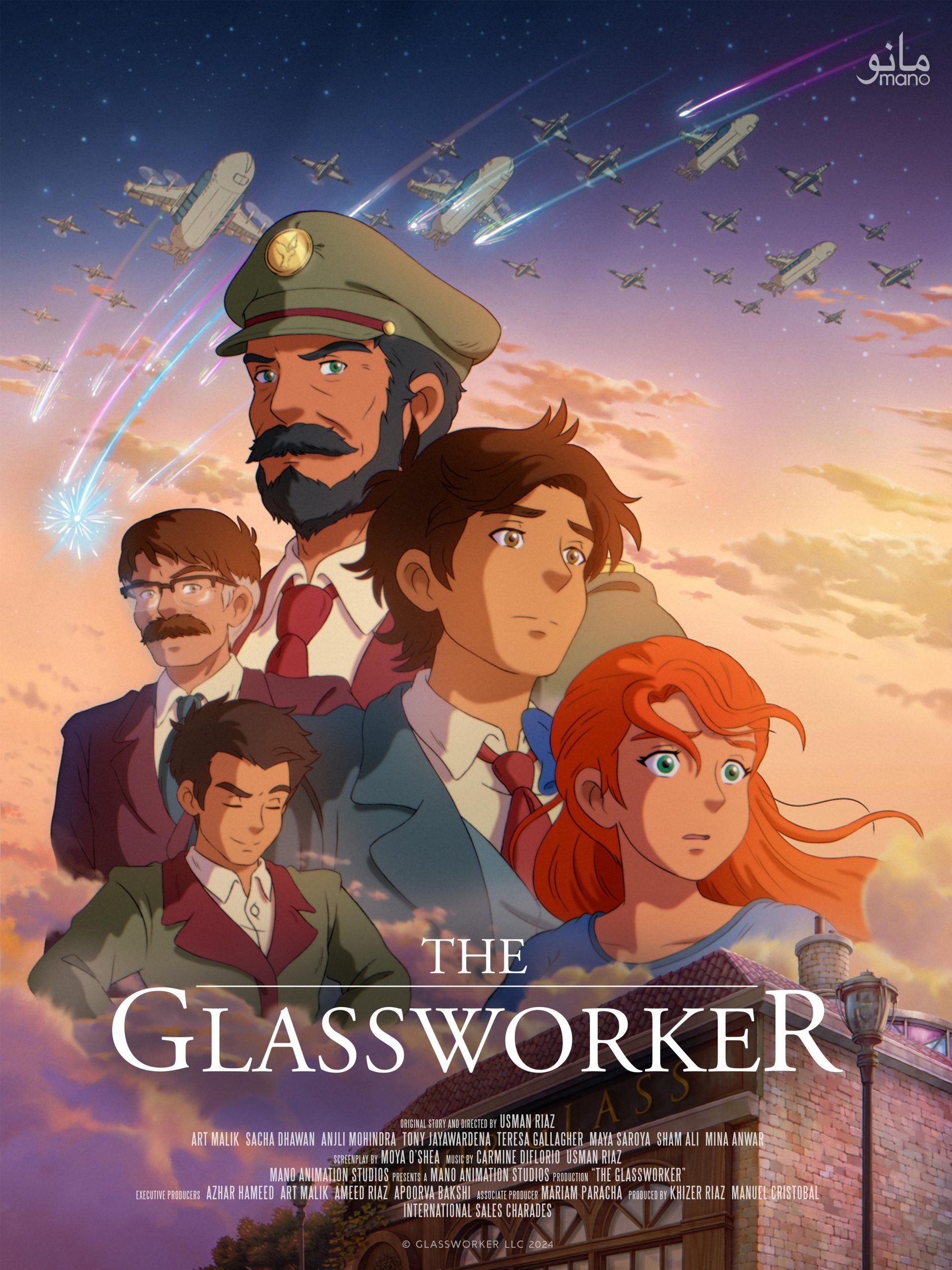
‘The Glassworker’ has been sent for the Oscars from Pakistan this year. The film has made it to the Oscars’ long-list and has a real shot at being nominated. It has been featured at prestigious film festivals across the world, mostly in Japan and Europe.
We at PakistaniCinema.Net are waiting for the good news.

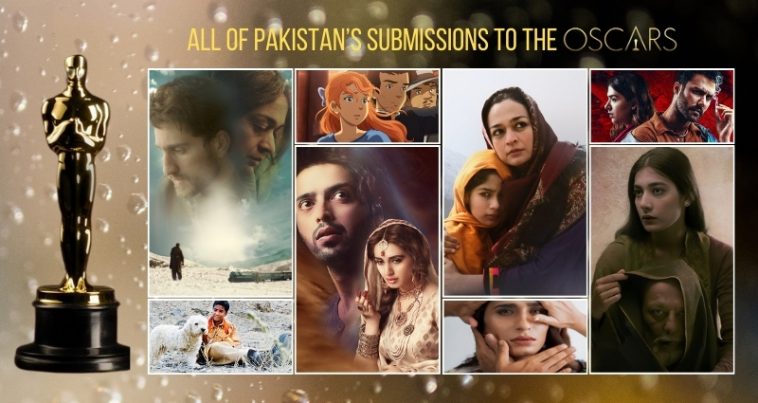

Comments
0 comments